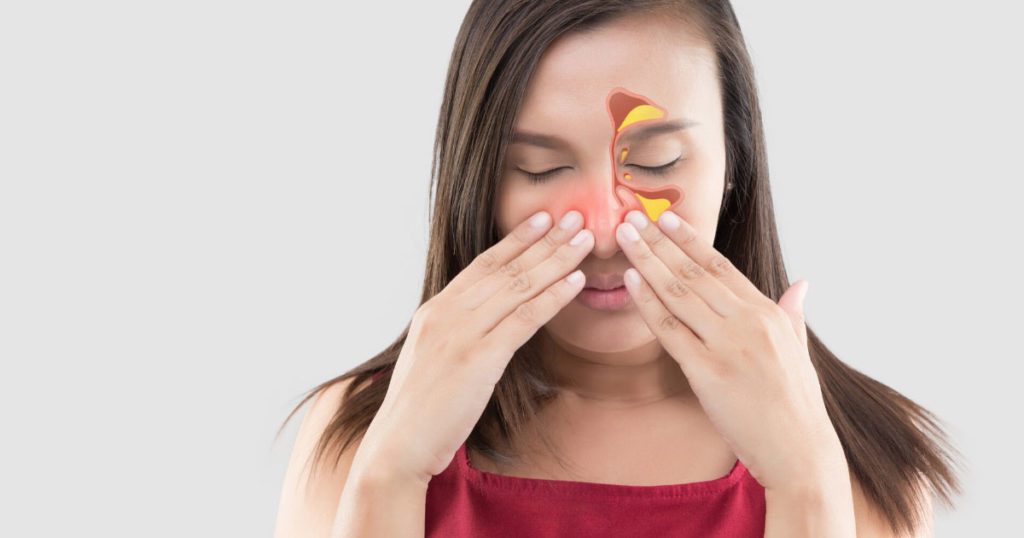Allergies symptoms which appear seasonally, such as high fever, are caused by pollen from grasses, trees, weeds, and mould spores. People with increased sensitivity to pollens suffer from painful and even painful symptoms.
The Itchy eyes, noses that are sniffling and watery eyes. It’s allergy time. Based on the American College of Allergy, Asthma and Immunology, allergies are a significant cause of illness for over 50 million Americans.
There are many prescription and over-the-counter antihistamines to combat allergic reactions. WebMD warns that they may cause adverse side effects such as dizziness, drowsiness, nausea and vomiting, fuzzy vision, and confusion.
To fight allergies without the horrible side effects of antihistamines, look at these natural remedies for home use.
1. Apple Cider Vinegar to ease allergy
Wellness Mama fervently believes in Apple Cider Vinegar. She says it is effective because it decreases mucous production and cleanses the lymphatic system.
For a home remedy, at home, sip one glass of water, along with one teaspoon of organic non-filtered apple cider vinegar. Consume the mixture three times a day when you notice the first signs of allergy.
2. Eat spicy foods save from allergy
Hot Chilli peppers, horseradish, hot mustard, cayenne pepper, and hot ginger are excellent condiments to relieve congestion in the nose.
As per the American Academy of Otolaryngology, decongestants such as pills or nasal sprays are dangerous for people with irregular heart rhythms or high blood pressure, glaucoma and heart disease.
An easy and tasty way to unblock the blood vessels that line the nasal membranes and the airways is to consume spicy food when you feel congested.
3. Locally-produced Honey reduce allergy
Honey that is locally produced by bees pollinates plants when they take pollen spores. These pollen spores will be discovered in love made by the bees.
If your body consumes pollen spores in the form of honey, you’re receiving an allergy vaccine to local pollens, which could increase your immune system’s resistance.
Mercola suggests eating honey produced locally to build a natural resistance against local allergens.
4. Eat more Fish
Omega-3 fats effectively decrease allergies, according to The Weather Channel. The results of a Swedish investigation that was published in Allergyfound that babies who eat fish have a lower chance of developing allergic illnesses and are less susceptible to seasonal allergies caused by pollen.
Make sure you are taking precautions and eating more omega-3-rich foods such as salmon, sardines and trout, along with flaxseeds and walnuts.
If you have kids, follow this Swedish study’s recommendations and give them an omnivorous fish diet early.
5. Exercise
A report published in Fitness Magazine explains exercise naturally reduces allergy symptoms by increasing blood flow to blood vessels in the nose, which is where allergy sufferers are more likely to be affected.
Michael Benninger MD, institute director in the department of otolaryngology and ENT at Cleveland Clinic. Cleveland Clinic says that after five minutes of exercising, it is possible to feel relief that could last for hours.
6. Kombucha and Kefir
According to a study by The Department of Immunology at Medical School in Dundee and Ninewells Hospital, UK, allergies are due to an unbalanced immune system that fails to react to the environment.
This is why gut-healthy bacteria, also known as probiotics, are highly effective in preventing allergic reactions and easing symptoms.
Wellness Mama recommends adding probiotics such as Kombucha and Kefir to your daily diet and fermented foods such as sauerkraut and aged cheese to prevent and treat allergies.
7. Consume Green Tea
It might surprise you to discover that green tea is a natural antihistamine. In the report, dermatologist Tim Mainardi MD recommends drinking two cups of tea a day for two weeks before the start of allergy season to avoid allergies before the onset.
8. Consume more strawberries
Strawberries, red peppers, and oranges are high in Vitamin C. According to The Weather Channel, Vitamin C helps to control allergies.
Broccoli is also high in Vitamin C and has the added benefit of being chock full of quercetin, a flavonoid believed to help reduce inflammation associated with allergies.
Apples as well as onions, berries, as well as cauliflower also contain quercetin. While allergies aren’t the most beautiful aspect that spring brings, they don’t need to be a burden.
Mix these remedies at home and, after a 30-minute run, enjoy a fabulous home-cooked meal with cayenne honey-glazed salmon, garnished with a dollop of yoghurt, served with a salad of strawberries, broccoli, as well as red pepper.
Serve your meal with a hot cup of green tea and glasses of apple cider vinegar. Within a matter of minutes, you’ll feel better.
What are your strategies to combat allergies? SEND this article with us, and let us know what home remedies work best for you!



